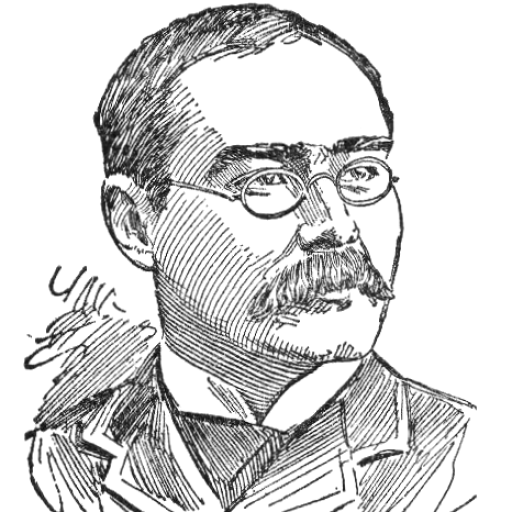By Allah’s Will !

Kipling’s first job was as assistant editor of the ‘Civil and Military Gazette’ in Lahore, the major Islamic center of British India. Maybe from this exposure grew his attraction to some aspects of Islam: for example, the expression “by Allah!” is sprinkled throughout his letters. He was particularly impressed by the Islamic concept of predestination, which is the subject of several of his poems.
This concept maintains that whatever happens in the world proceeds entirely from the Divine Will and is irrevocably foreordained – not even a stone (in the poem ‘By the Hoof of the Wild Goat’) or a rose (in ‘The Answer’) can fall without Allah so willing, and their fall is part of a vast Divine Plan which is beyond man’s comprehension. Jesus expressed the same thought when he said that “not one sparrow falls on the ground without your Father’s will; the very hairs on your head are all numbered”. Furthermore, Islam teaches that since God is just, all that happens to every person is deserved, whether it seems so at the moment or not.
Kipling’s concern with the fatalistic idea of predestination is all the more remarkable since it stands in sharp contrast to his own values of individual responsibility and action, most memorably expressed in his celebrated poem ‘If–‘. Islamic folklore is replete with many variations on the tale of someone protesting against a seeming injustice and later realizing that in the larger scheme of things everything happened just as it should have.
This view of life is of importance not only to those interested in Islamic philosophy. One needs not think of it in terms of God “sitting up there” and ordaining in minutest detail all which happens – an idea which many people nowadays find difficult to accept. I prefer to think of it as a Higher Intelligence, which operates in all events and turns things out much better than I could have wished for myself. So many people faced with a personal crisis and feeling their world falling to pieces around their ears cry out, “Oh my God, why is this happening to me?”; but looking back on it, often they realize that it was the best possible thing which could have happened to them. Many people, for example, go through a “mid-life crisis” – such as loss of a secure job or breakup of a marriage – and later realize that it was a source of renewal and enrichment which prevented their life from sinking into a deadening routine.
Even the greatest crime in modern history – the extermination of six million Jews by the Nazis – resulted in the Jews regaining their ancestral homeland after two thousand years of exile, although none of those who boarded the trains to the death camps could have foreseen it. This is not a Panglossian view that “all happens for the best in this best of all possible worlds”; rather, it is close to the Buddhist view (see ‘Buddha at Kamakura’) of karma – the law that every good or bad action creates reverberations which finally bring back to the doers their just recompense, without necessity for intervention by an all-knowing and all-powerful God.
